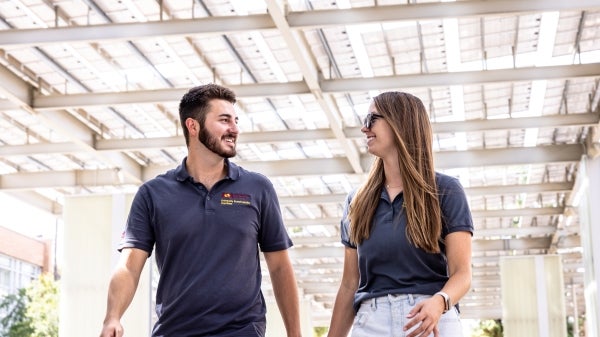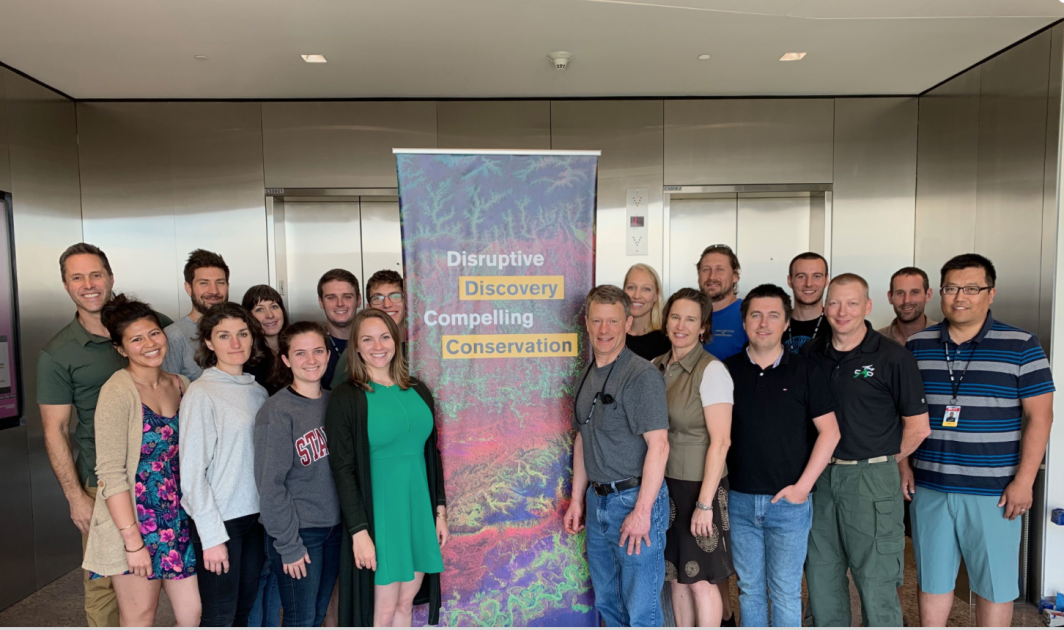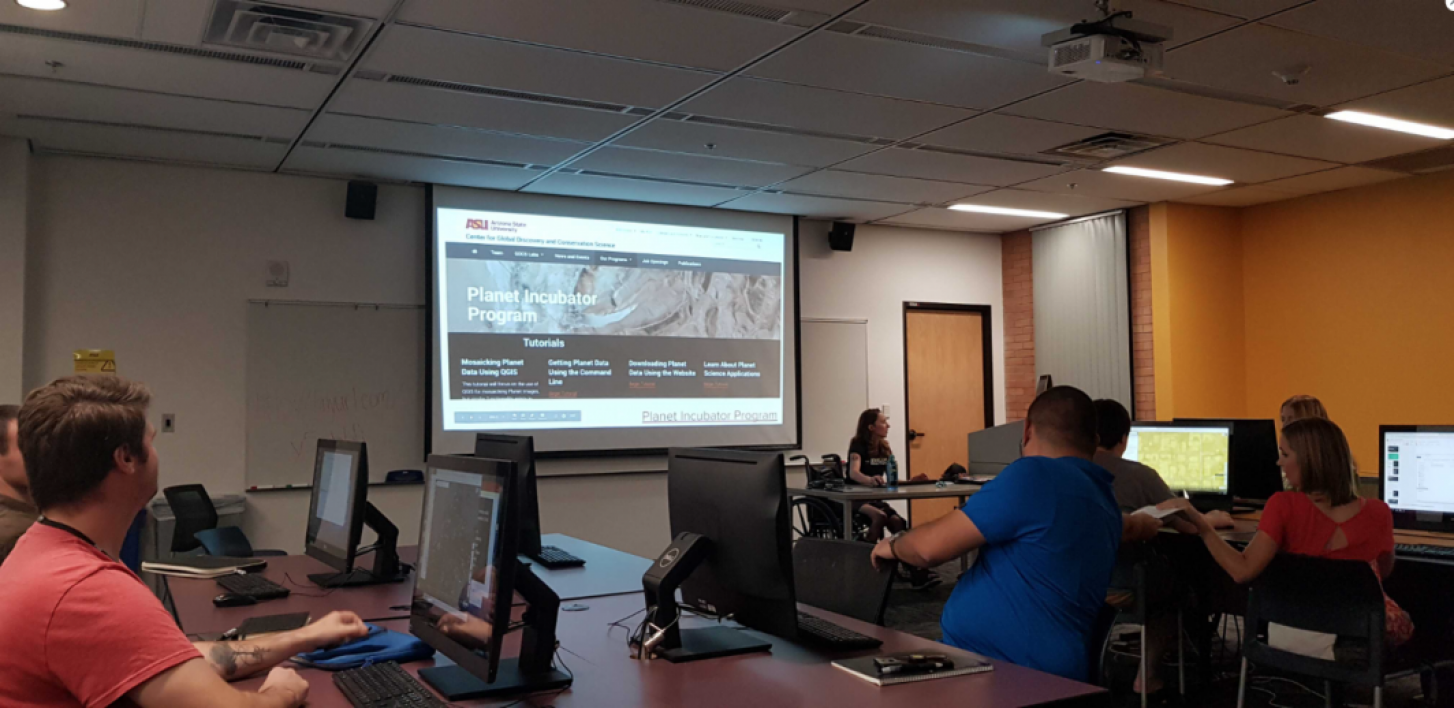From working to save Hawaiian coral reefs during the 2019 Pacific Ocean warming event to empowering hundreds of students and researchers with data from the largest constellation of satellites currently in orbit, in less than a year since launch, Arizona State University’s Center for Global Discovery and Conservation Science is already making impressive impacts on global environmental decision-making.
“We have been building this center since the day we landed at ASU, and with the support of the Knowledge Enterprise, ASU Foundation and the donor community, we have been building it up quickly,” said Greg Asner, director of the center and professor in the School of Geographical Sciences and Urban Planning. “The purpose of the center is to do science in a way and at a scale that has a major impact on conservation resource management and policy decision-making.”
Launched in January 2019 following the appointments of Asner as center director and Robin Martin as associate professor for the School of Geographical Sciences and Urban Planning, the center focuses on increasing the impact of new science and technology to generate solutions for a more sustainable future.
Using innovative methods, cutting-edge modeling techniques and artificial intelligence, center scientists research complicated interactions of Earth’s land, atmosphere and oceans to understand how global systems operate.
“Our center's work is important because it brings to ASU a capability that we've developed over the last 20 years to generate scientifically robust information at scales unachievable in the past and in a way that has a direct role in environmental decision-making,” Asner said.
The center is an expansion of a vision and operation Asner started himself 18 years ago at the Carnegie Institution for Science on the campus of Stanford University and is based not only on Asner’s lab's work, which includes global coral reef mapping and measuring plant biodiversity in tropical forests, but on the process of hiring and supporting new professors who want to have the same kind of discovery and conservation impact.
The Center for Global Discovery and Conservation Science 2019 milestones include:
• Launch of the Planet Incubator Program: Empowering students and researchers with a catalog of imagery from Planet, an Earth-imaging company operating the largest constellation of satellites currently in low Earth orbit.
• Acquisition of the Global Airborne Observatory: A highly modified Dornier 228-202 aircraft that carries the most advanced mapping technology operating in the civil sector today.
• Publishing of dozens of papers from work in a diverse range of ecosystems from tropical forests to savannas that utilize cutting-edge modeling techniques and artificial intelligence.
• Secured new grants including $250,000 in funding from the Lenfest Ocean Program for the current mission to map coral reefs across the Hawaiian islands.
With the quick rev up and early success, Asner suggests that more great things are to come from the center in the near future.
“All of this expansion is in the service of generating bigger impacts around the world in the name of ASU and also in connection to our student body and our faculty,” Asner said.
Top photo: The ASU Center for Global Discovery and Conservation Science's Global Airborne Observatory flying over Hawaii. Photo courtesy Center for Global Discovery and Conservation Science.
More Environment and sustainability

Charles Redman, founder of the School of Sustainability, faces a new adventure: Retirement
At the retirement celebration for Charles Redman on Oct. 22, two messages persisted: Redman’s contributions to Arizona State University helped to shape the interdisciplinary efforts we now find…

10 climate insights to guide our future
A group of globally renowned social, natural and climate scientists has once again convened to offer their newest annual synthesis report, “10 New Insights in Climate Science.”The report, published…

The future is green: Job demand translates to high employability for ASU sustainability grads
A 2023 report by Forbes on the state of green jobs confirmed what Arizona State University has been trumpeting for years: Sustainability will play a large part in the new economy.The report suggests…



